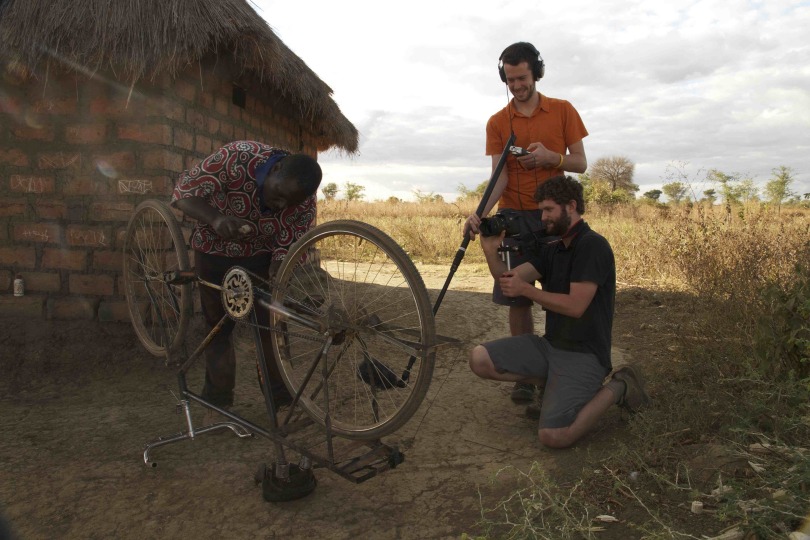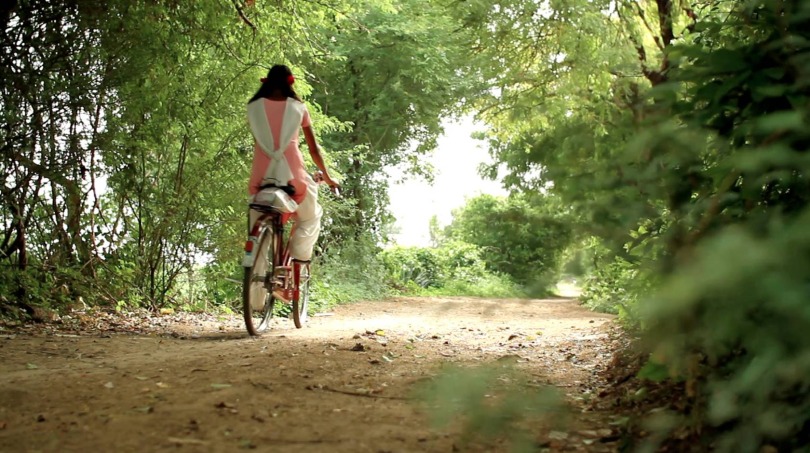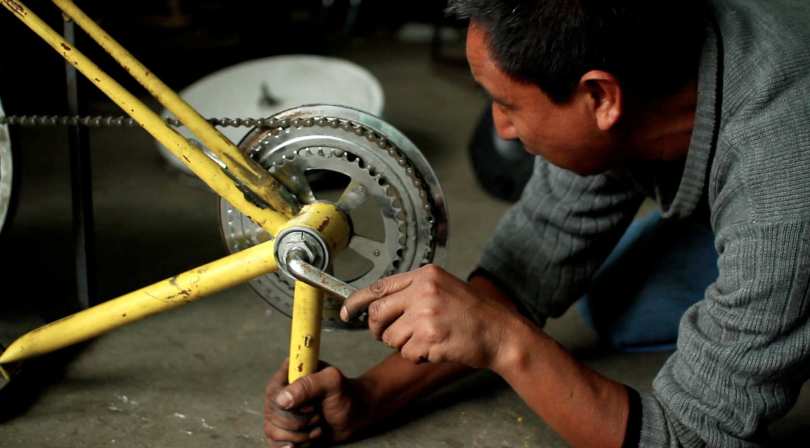With My Own Two Wheels
An Interview with Jacob Seigel-Boettner

Pulling up to his interview in a mustard yellow and relish green cargo bike, Jacob Seigel-Boettner embodies the principle of his documentary: bicycles change lives. From Zambia to his own Santa Barbara, Jacob uses the compelling stories of people whose lives have changed because of two wheels and documents how the bicycle operates as a vehicle of transformation on a global scale. Recent graduate of UC Berkeley with a BA in Peace and Conflict Studies, he found and filmed a tangible medium for weighty change.
Q: What gave you the idea for this film?
Seigel-Boettner: Well, I guess I should start at the very beginning. My parents brought me home from the hospital after my birth in a bicycle trailer. So, I guess it subconsciously started at day one. My parents are both schoolteachers and led traveling bike tours with kids. So it’s not an exaggeration to say that I grew up on a bike. Then I started working in Rwanda, designing special bikes for coffee farmers (gesturing to his elephantine yellow and green bike) — that’s one there.
I felt that the best way to share my experiences was with film. So I made a mini film that showed at the Santa Barbara Film Festival in 2009 — Pascal’s Bike. Reactions were so great because of the simplicity of the concept, and I got asked to tell the story globally. So senior year I found this great grant that would fund most of the film. And it just kind of went from there.

Q: How did you find all the compelling characters you used in the film?
Seigel-Boettner: Many development projects use the bike, so I started emailing all these organizations and asking if they had good stories. Most of the people we used were strong recommendations from the organizations, but in India it was different: We were expecting a few girls to interview and choose from. Instead we find like 45 young, giggling girls who were under the impression it was some sort of marriage arrangement. It was so intimidating, and none of them spoke any English. But we started asking questions like, “what do you want to be when you grow up?” Most of the answers were predictable, but Bharati stood out because she wanted to be an official in local government. We were like, “We want you.” Also, she wasn’t quite as giggly — definitely a plus.
Q: How long did you travel filming? Did you run into any obstacles along the way?
Seigel-Boettner: The filming trip was two months long — 20 airports in two months. I got stuck in Germany because I lost my passport. The film almost didn’t happen. But I got buddy-buddy with the American embassy and it all worked out. Then everyone got sick in India so we all had to get good at doing each other’s work, covering for whoever was out for the day. Ian Wexler (director of photography) was patient, since Isaac Seigel-Boettner (co-director) and I are so close in age there’s lots of fun sibling rivalry. But he put up with us, poor guy.
Q: What is one thing about this experience that you’ll never forget?
Seigel-Boettner: Coming home and filming in Santa Barbara. Growing up here you get the feeling there is a social divide. At high school there is definitely a side of campus Latinos hang out on and a side whites do. But I didn’t realize how big the split is until I followed Sharkey, [a Santa Barbara character], around. He was in my same grade in high school, and his life path is so completely different. Yet we both have this thing with the bike. A lot of the same issues we traveled around the world to film are happening here on a smaller scale. We wanted to localize it; the bike has an impact here and in developing countries. It can be our solution too — it’s not just us and them.

Q: What was the biggest challenge about creating this film?
Seigel-Boettner: Putting everything together. You’re so invested in the story that sometimes the best parts hit the cutting room floor. So we had to figure out what the best pieces overall were, not just the best pieces for the character. It hurt.
Q: What makes your documentary stand out?
Seigel-Boettner: There are a lot of really good social justice films that leave you hanging with what to do next. We’re trying to make a special effort to encourage people to adopt bikes. We want to make it clear what contribution they can make. We want to get people involved in organizations like Bici Centro and World Bicycle Relief. Because things can be done to help regardless of what resources people have. We wanted viewers to have an immediate next step. We’re taking the initiative to schools and calling it “Next Pedalstroke.” Corny? Yeah.
411
With My Own Two Wheels screens on Feb. 2 at 7 p.m. at the Lobero Theater and Feb. 3 at 2 p.m. at the Metro IV Theater. The schedule is subject to change, so see independent.com/sbiff for updates.



